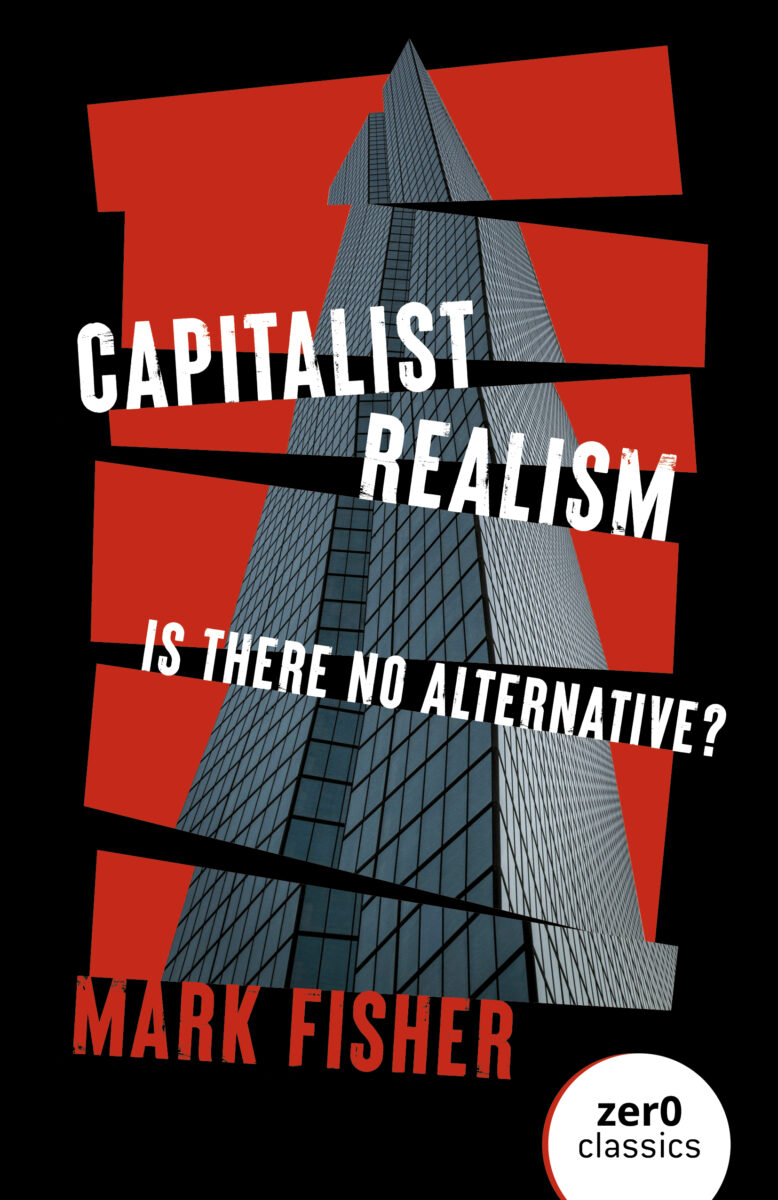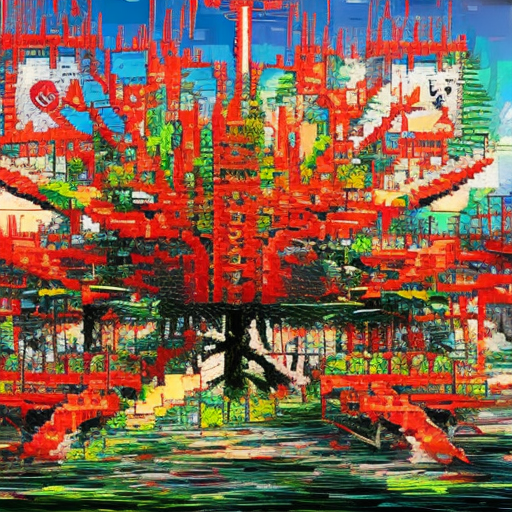Capitalist Realism (new edition) published by zero books
It’s no secret that capitalism is the world’s dominant economic system. It’s all-encompassing, powerful, and apparently unstoppable. But why is it so difficult to envision a future without capitalism? Mark Fisher attempted to answer this in his book, “Capitalist Realism.” Fisher was a British cultural theorist and writer who looked at how pop culture, politics, and philosophy all fit together.


This is Fisher’s most renowned work (although all his writing deserves attention), originally published in 2009 and recently reprinted as a Zero Books Classic. It is a cornerstone in the conversation on modern capitalism. Fisher argued here that capitalism has grown so prevalent that it has become an unquestionable ideology. He argued that it has become the only “realistic” economic system and that the end of the world is easier to envision than that of capitalism.

Capitalist realism is a widespread intellectual framework that accepts capitalism as the only “realistic” economic system. Fisher states that capitalism’s reality has grown so prevalent that no one questions it anymore. However, according to Fisher, “capitalist realism” is an ideology of pessimism and resignation.
Arguing that modern capitalism is characterised by a lack of choice and alternatives, Fisher states that it therefore gives rise to a fear and anxiety culture, which makes it difficult to question the status quo. According to Fisher, contemporary capitalism is defined by a culture of materialism and conformity; capitalism pushes individuals to spend more and focus on material things. He observes that capitalism forces people to have fewer and fewer beliefs and values. Understanding Fisher’s concept of “capitalist realism” is critical to properly comprehending capitalism today.
Demonstrating the importance of viewing capitalism in its historical context, Fisher states that “capitalist realism” has its origins in the post-war period as a reaction to the ideologies that produced World War II, a viewpoint that the fall of the Soviet Union in the late 1980s only reinforced. Moreover, Fisher argues that capitalist realism is then further entrenched in 1980s and 1990s neoliberalism—a political ideology that promotes free markets, deregulation, and privatisation. This ideology has remained increasingly prevalent, even after the 2008 financial crisis. It didn’t seem to matter what capitalism did to you—made you homeless, jobless, or took you to war—nobody could imagine being without capitalism.

Fisher contended that alternatives to capitalism are conceivable. Regardless of what “they” tell you, other economic systems can be investigated and could prove more viable. It is conceivable to imagine a future without capitalism. Fisher believed that “post-capitalism” is one of the most essential alternatives. That is, an economic system in which the emphasis is on the creation of a more equal economic system rather than the accumulation of capital. It is an economic system that encourages individuals to think outside the box and experiment with economic ideas.
Mark Fisher’s ideas have had a considerable effect on the discourse of modern capitalism and the anti-capitalist movement. His ideas have been studied, acknowledged, and argued about by many, and his book remains a key piece of (anti) capitalist thought. His notion of “capitalist realism” has been used to criticise the rise of neoliberalism in recent decades and to explore viable alternatives to capitalism.
Fisher believed that “post-capitalism” is one of the most essential alternatives. That is, an economic system in which the emphasis is on the creation of a more equal economic system rather than the accumulation of capital.
Fourteen years after this book was first published, it still resonates because of the power of Fisher’s voice. Watch his lectures on YouTube and that will become apparent. You can see his mind at work, ideas tested in real time. Fisher’s significance extends beyond his contributions here—blogging under the moniker K-Punk, he was one of the leading protagonists of what was a new medium in the early 2000s. His contributions to popular culture, politics, and philosophy have had a significant impact on social theory.
Fisher’s proposal for alternatives to capitalism focused on the concept of “general intellect.” This was derived from Marx and Engels’ theory and focused on people’s collective knowledge and experience rather than their individual ones. Fisher’s thesis was that instead of relying on the power of private wealth, a post-capitalist society could be built on the knowledge and experience of a group.
If we want escape from the capitalist system, we should use universal intelligence to devise a new way to run things. Instead of relying on the accumulation of capital, he envisioned a post-capitalist economy where people owned and made things together. Fisher also argued that a society after capitalism should be based on a new kind of social imagination. He said people should be encouraged to invent new and creative ideas that could help make society fairer and more robust.
In the spirit of Fisher, we need to look forward (not back) to a post-capitalist age and a collective future. The lone individual is dead; the answer to the climate emergency—adequately funded public services, better and/or more meaningful work, a fairer society—will only be solved by collective endeavour. The old is dying, but a new will be reborn. We must listen to each other and recognise that our strength is in community, equality, and anti-capitalist thought.
A brighter future is within our grasp; we just need to seize it.


This book deserves its “classic” status. Fisher’s work should be read and re-read; his ideas should be debated (virtually and in person), then shared and worked into new concepts—a fitting legacy to Fisher and his work.
Alexander Dugin Artificial Intelligence Book Review Books Britain Capitalism Conservative Government Creeping Fascism Crime and Punishment diary Donald J Trump Elon Musk Europe European Union Far Right Extremism Fascism Film France Gaza History Immigration Imperialism Iran Israel Keir Starmer Labour Government Labour Party Marxist Theory Migrants Nigel Farage Palestine Police Protest Reform UK Russia Suella Braverman Television Trade Unionism Ukraine United States of America Verso Books War Welfare Work Working Class




Leave a Reply